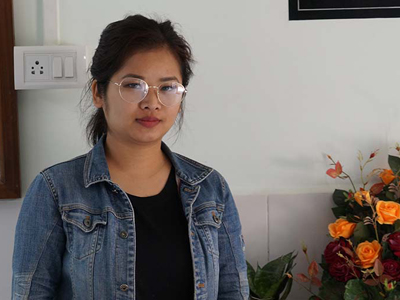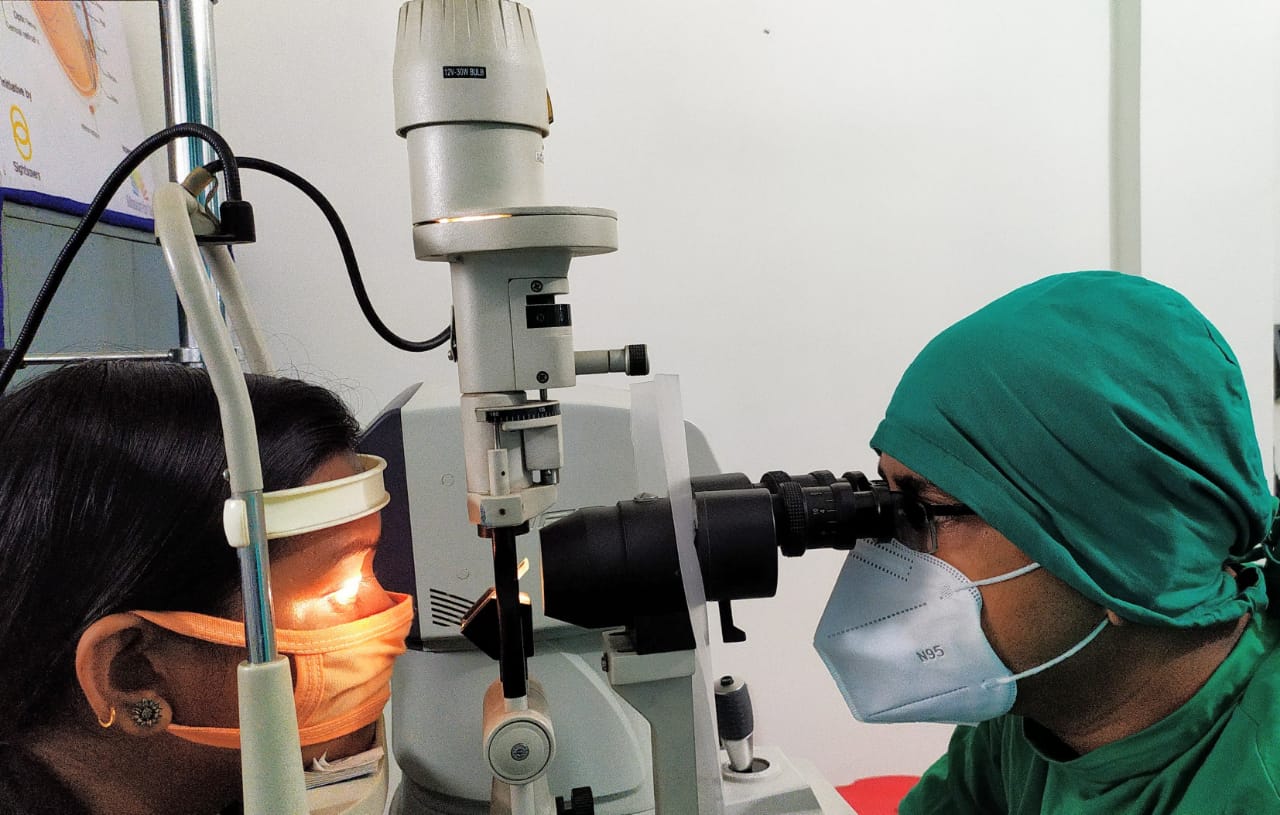No Compromise on Quality
Created By: Shubhrakanti Bhattacharya and Shrikant Ayyangar

Dr. R. Lalrindiki heads the Ophthalmology department of MFV’s partner hospital – The Synod Hospital. Situated in the hills of Aizawl, Mizoram, the Synod Hospital's ophthalmology unit is one of the most self-sufficient and well-established units in terms of manpower, equipment and facilities. The unit has a separate ‘Eye Block’ which houses OPD, general ward, cabins, operation theatre, low vision clinic and optical shop. Quality of care and the hygienic maintenance of the hospital premises is of paramount importance for the management. Dr. Lalrindiki’s heart fills with pride when she recalls a recent incident that was a testimony to the quality assurance at the hospital.
In early December 2020, Dr. Lalrindiki had operated on a couple in their late 70s for cataract removal. The couple resides in Ramhlun village of Aizawl district, which is about 5-6 kilometres from the hospital. Within two days of the operation, Mr. Rosiama returned to the hospital with a severe infection and PL+ vision. Looking at the severity of the infection, her confidence in the sanitisation and maintenance of equipment was rattled. While she was preparing for the next course of treatment, she prayed in her mind, “O Lord, if you want me to continue in this profession, please show me the way.” With that prayer, she and her team of doctors attended the patient on an emergency basis and performed several procedures, applied necessary medications and kept him on constant watch.

Mr. Rosiama showed slow improvement and during the follow-up examination a week later his vision was 5/60 and cornea was 50% clear. In the meantime, the doctors along with other staff members looked into the matter carefully and conducted a thorough investigation for the source of this grave infection. All the equipment of the eye department including the entire set-up of the operation theatre was thoroughly checked. The team found nothing and all equipment was sterile. All the other patients operated on that day including Mr. Rosiama’s wife were doing perfectly fine and had good vision.
Upon further investigation, the microbiologist found that the infection was caused by a very rare bacteria called Morganella morganii. Further probing with the patient and his family members revealed that on the very next day of the surgery, the patient had visited his poultry farm and was involved in dressing chicken, which was the source of the infection.

Post this intense investigation, Dr. Lalrindiki had some time for introspection herself. Though her first assumption about the source of infection shook her immensely, she was reassured of the quality and hygiene standards at the hospital by all her team members and colleagues. She also felt extremely grateful to Mission for Vision for the continued focus on quality and repeated follow-ups to ensure quality measures were in place. After this incident, she is indebted to Mission for Vision for making them understand the importance of quality and she is also thankful to Dr. Uday Gajiwala who had guided the entire team on the quality pathway.
Now coming back to Mr. Rosiama, he has recovered completely from the infection and he can see clearly (6/18 vision) and back to his work as before. He is quite grateful to the entire team at Synod Hospital to provide him quick treatment and focusing on the solution-centric approach.
Story narrated by Dr. Lalrindiki and compiled by Shubhrakanti Bhattacharya and Shrikant Ayyangar of Mission for Vision.
SHARE NOW:
RELATED ARTICLES

Nunpuii's Inspiring Story
Here is the inspiring story of Nunpuii who is an optometrist and works in the tough terrains of Northeast India.
Read More
Quiet flows the Dawki
I was on an assignment to photo document the work done by “Mission for Vision” (MFV) with their partner Bansara Eye Care Center (BECC).
Read More
Boosting VC Performance in COVID-19 Times
Franklin Daniel shares 10 strategies to improve Vision Centre performance during COVID-19 pandemic
Read More